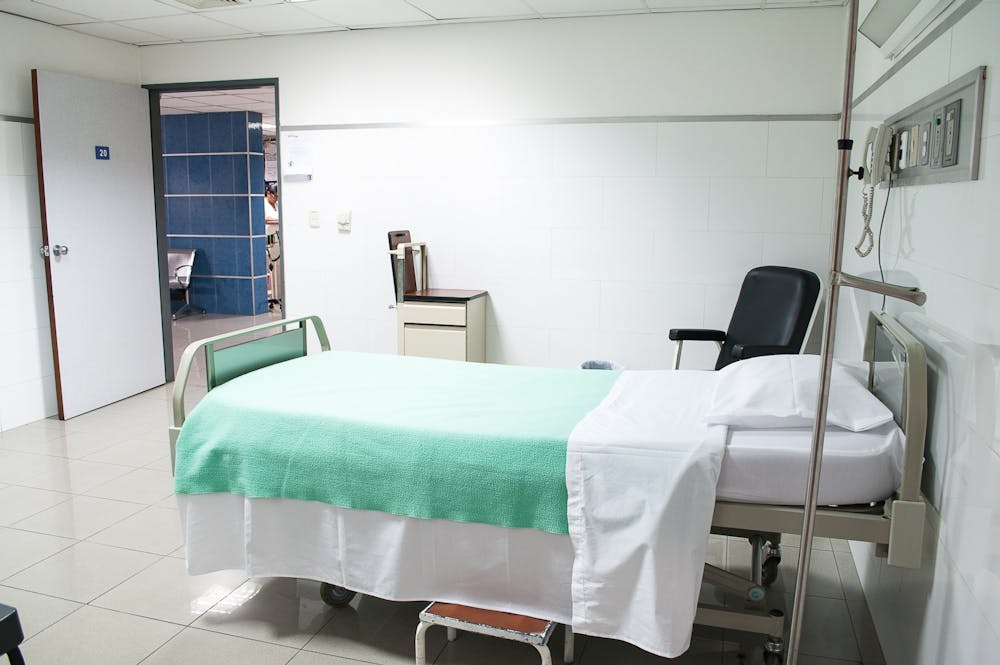If you’re under 31 and are considered young and healthy, why would you worry about health coverage from an insurance company? You may think that health insurance is not necessary, that it's too expensive or maybe not worth the trouble. Chances are that you will not need to even use your insurance until you get older. So why would you buy a private health insurance plan?
The answer is simple: if you are under 31, however, and you don't have insurance you might be putting yourself at risk. While it is true that as someone under 31, you might not get seriously ill or hurt, without insurance, a serious accident or illness could leave you with staggering medical bills that will burden you for years. Additionally, you could be required to pay a penalty if you wait until after you turn 31 to seek private insurance coverage. The truth is, private medical coverage is beneficial for someone no matter what age they are. Let's take a look at why you need health insurance before you turn 31.

Photo Courtesy of Scholarship Media
Health insurance isn’t always the right fit for everyone, as it might not be the cheapest thing to purchase. Choosing not to purchase private coverage from an insurance company might be tempting as you would seemingly be saving money. Unexpected illnesses and accidents, unfortunately, can happen to anyone. These events are always much more expensive when you’re uninsured. The biggest benefit of a private health plan is that it covers the costs if you ever have an emergency hospital stay for any length of time. This also means that you'll be able to choose from public, private, or day hospitals for your treatment. This can increase your options for care and it will also mean that you'll face a shorter waiting period when you need a hospital. With major hospital stays, prices can vary with different facilities. This is one of the big reasons that people end up with large unexpected bills. In most cases, the Medicare system will cover 75 percent of your hospital care, as listed in the Medicare Benefits Schedule. If you don't have private coverage, your out-of-pocket costs could be a deductible equal to the other 25 percent. If the hospital you choose charges more than the fees listed, you'll end up paying even more.
For young people under the age of 31 in Australia, when it comes to a private insurance policy, there might be several reasons why you would consider forgoing it. For some, it could be a financial matter. Telemedicine options such as online therapy might be a cheaper alternative for seeking advice from a health care provider or licensed therapist and could help you when you need immediate help. Online therapy is a great option, as it allows people to meet with a psychologist or counselor who can meet their specific needs, even if they live far away from that mental health provider. A video chat can be just as helpful as in person traditional therapy, and many mental health providers of various stripes (psychologists, psychiatrists, counselors, and more) are working with online therapy programs to benefit their clients.
Lifetime Health Penalty

Photo Courtesy of Scholarship Media
For young people under 31, simply put, paying for health coverage is a matter of either buy now or pay later. If you choose not to purchase coverage from an insurance company, government initiatives impose escalating penalties on coinsurance costs for plans purchased after you turn 31. The Lifetime Health Coverage policy requires that you pay an extra two percent of your premium for every year you went without coverage. Additionally, this penalty doesn't disappear until you've had continuous coverage for ten years. As an example, consider that an individual who buys coverage for the first time at the age of 40 will pay a 20 percent penalty on a plan. They would pay an average of $1,500 in additional penalties each year until they turned 50. On the other hand, however, if you buy in early, the penalty could become a discount of up to 10 percent if you purchase around the age of 25.
As an added incentive, individuals who earn less than $90,000 per year or families earning less than $180,000 might qualify for a rebate from the Australian government. That means the government would chip in about a quarter of the cost of your private insurance each year. This could make it more affordable and worthwhile even for young people. However, the rebate doesn't include whatever penalty you might owe because of the Lifetime Health Coverage penalty. That means that if you've waited to buy private coverage from an insurance company and have to pay the added penalty, the rebate calculation will not include that and you'll have to pay that cost yourself.
The best bet is to buy health coverage early and keep the plan for at least ten years to get the maximum benefit from the system. Doing this will allow you to take advantage of premium discounts, avoid penalties, and maximize the value of the available assistance. It could also ensure your financial health should an unexpected medical event arise.





